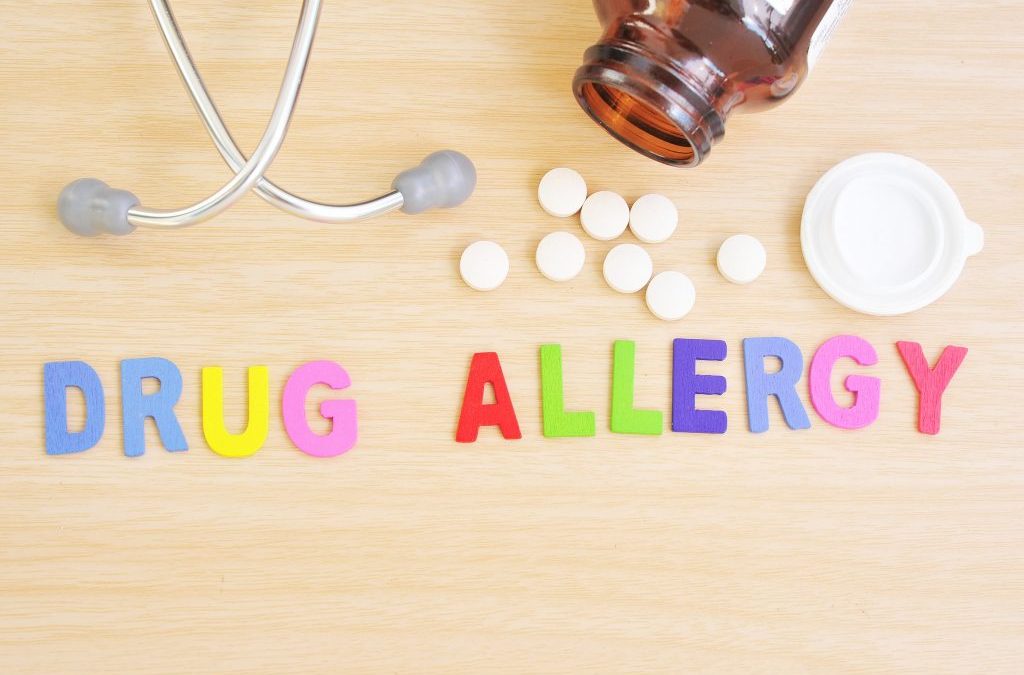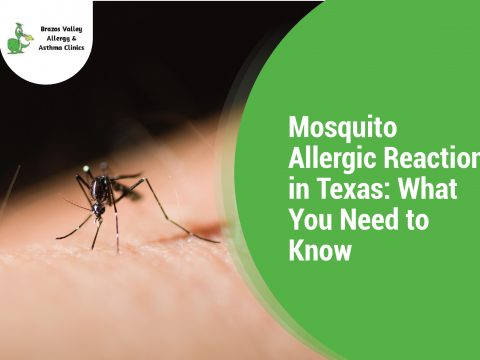- 979-485-9287
- office@bvallergy.com
-
 979-251-7804
979-251-7804
Drug Allergy

Latex Allergy
May 10, 2019
Exercise-Induced Asthma
June 18, 2019Many people use medications to manage their health and treat a variety of illnesses. Some may have no reaction after taking a drug while others have. Those people who have an allergic reaction to medicine will develop a drug allergy rash or will have trouble breathing after taking it.
What is Drug Allergy?
A drug allergy is an abnormal reaction of your immune system when taking a certain medication. Any medication — over-the-counter and other prescriptions— is capable of inducing a drug allergy. People who are allergic to certain medications may experience different symptoms regardless of whether the medicine comes in liquid, pill, or injectable form. A person can have a reaction after taking a drug for the first time while others may not. It actually differs from person to person. In addition, a person can develop a drug allergy at any time. Even if you’ve taken a drug for years and had no drug allergies, it is possible that a drug can trigger a reaction in the future.
You have to remember that a drug allergy is different from a drug side effect. Sometimes, taking medication has a bad side effect. This is normal and cannot be avoided. It can be anything like an upset stomach and headache or on a much a serious problem, damage to your heart. In drug allergy, your immune system is the one to blame. Your immune system mistakes a certain drug as harmful and this causes an allergic reaction. Consult an allergist should you want to know more.
Difference Between Drug Allergy and Drug Side Effects
Many people have experienced an unpleasant side effect to a medication. Most of the unwanted symptoms you might experience from taking a prescription drug are not caused by an allergic reaction. Drug side effects are pretty common and can be expected, especially with certain drugs.
You can find the possible drug side effects on the package label inserted. Common side effects include:
- Nausea
- Diarrhea
- Constipation
- Vomiting
- Bruising
- Fatigue
- Lightheadedness
However, s true drug allergy is more serious than a side effect. It is when your system “sees” the medication as a foreign body and reacts in a way to get rid of the medication. Drug allergies can occur the first time you take a drug, or they may develop over time.
Common drug allergy symptoms include:
- Hives
- Itchy skin or eyes
- Skin rash
- Swollen lips, tongue, or face
- Wheezing
Drug Allergy Causes
As mentioned earlier, an allergic reaction occurs when your immune system mistakenly identifies a certain drug as dangerous and harmful. Once this happens, it develops antibodies specific to that drug. These antibodies will attack the substance. This activity will release chemicals that will cause the signs and symptoms associated with an allergic reaction.
The most common drug that causes allergy is penicillin, which is one of the most widely used antibiotics in the world. Up to 10% of people report being allergic to this drug. Aside from penicillin, there are other medications that can cause allergic reactions. Some of these include:
- Antibiotics, such as penicillin
- Sulfa drugs
- Insulin
- HIV drugs
- Anticonvulsants
- Antiseizure drugs
- Chemotherapy drugs for treating cancer
- Medications for autoimmune diseases
- Pain relievers such as aspirin and ibuprofen

Drug Allergy Symptoms
When people with drug allergy take a certain medication, signs, and symptoms will then slowly manifest. These symptoms can start right away or weeks later. There are cases when the symptoms will kick in within minutes, sometimes even seconds, of taking a drug.
The severity of the symptoms may also vary, from mild to severe. Some of the common drug allergy symptoms include:
- Rash
- Runny Nose
- Itching
- Coughing
- Swollen face, lips, or tongue
- Shortness of breath
- Wheezing
- Watery eyes
- Hives
- Fever
If you feel like your airways and throat are tightening or you feel dizzy and nauseous, you might be experiencing anaphylaxis. It is a rare, life-threatening reaction that causes widespread dysfunction of body systems. When this happens, you might need emergency treatment so immediately contact your doctor or allergist.
Drug allergy symptoms due to anaphylaxis include:
- Abdominal pain or cramping
- Confusion
- Diarrhea
- Difficulty breathing with wheezing or hoarse voice
- Dizziness
- Fainting or lightheadedness
- Hives on different parts of your body
- Nausea or vomiting
- Rapid pulse
- Heart palpitations
Drug Allergy Treatments
The primary role is to relieve your drug allergy symptoms. Certain medications can help block the immune response and reduce symptoms. These include:
- Antihistamine – It can control rashes, hives and itching. An antihistamine blocks the production of histamine and may help calm these symptoms of an allergic reaction. Antihistamine come as pills, eyes drops, creams, and nasal sprays.
- Bronchodilators – For lung congestion or coughing, your doctor may prescribed this medicine to widen your airways. This drug will help open your airways and make breathing easier. Bronchodilators come in liquid and powder form for use in an inhaler or nebulizer.
- Corticosteroids – For swelling of your airways and other serious symptoms, you may need this medicine as it can help reduce the inflammation that leads to these problems. Corticosteroids come as pills, nasal sprays, eye drops, and creams. They also come as powder or liquid for use in an inhaler and liquid for injection or use in a nebulizer.
For anaphylaxis, you may need an epinephrine shot and medical care. But sometimes, doctors use a process called drug desensitization to treat a drug allergy.
Drug Allergy Desensitization
Drug Desensitization also called as “induction of drug tolerance” is a method of safely supervising a medication to a patient whose allergic to it. This procedure temporarily allows an allergic patient to take the medication with a small amount then, over several hours, gradually increase doses until your immune system can handle the drug. It should be performed by an allergist/immunologist in an appropriate setting such as the hospital to treat possible reactions immediately.
However, like many other allergies, the basic drug allergy treatment is avoidance. If you already know that you are allergic to a certain drug, then stay away from it. Make sure that your medical records clearly identified that you have a drug allergy. If possible, indicate what medication you are allergic to. Also, inform your healthcare providers such as your dentist or any other medical specialist about your drug allergy as to not give you treatments that would require you to be exposed to that drug. You can also wear a drug allergy medical alert bracelet. This can greatly help when emergency treatment is needed.
Dr. Paul Jantzi, a board-certified allergist and immunologist, provides allergy treatments in Texas with office locations in Bastrop, Brenham, College Station, Columbus, Giddings, and La Grange.
You can contact him at any of the Brazos Valley Allergy & Asthma Clinics for professional allergy, asthma, and immunology services to patients at six locations throughout the Brazos Valley. They provide the best care and affordable antibiotics for patients.
REFERENCES:
Mayo Clinic
American College of Allergy, Asthma, and Immunology
WebMD




